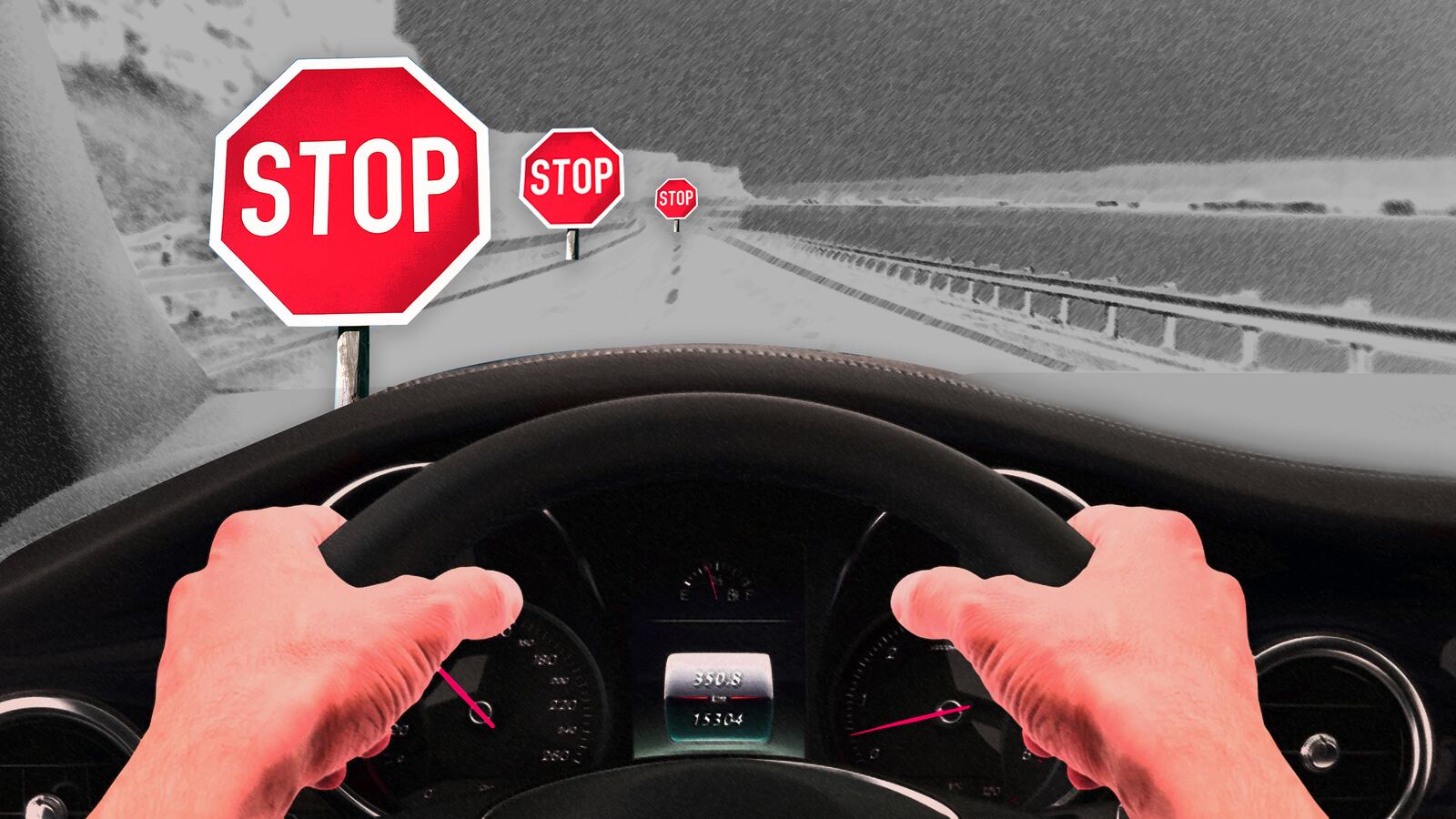In March, the normally peaceful, tree-lined streets of Brooklyn’s Park Slope were pierced by the screams of two mothers when a driver allegedly had an epileptic seizure at the wheel and rammed over two toddlers, a boy and a girl.
The children were instantly killed.
The accident garnered attention in New York, primarily because it was made complicated by biology. There was the lack of street cameras, of course. There was also the fact that the mother of one child was a Tony Award-winning actress. And the tragedy occurred in New York Mayor Bill de Blasio’s neighborhood, a section of Brooklyn known for its quaint brownstones, yuppie families, and the children that come with both.
“I wish she was under arrest right now,” de Blasio said in the aftermath. “I just want to speak from the heart: This is just terrifying, what happened to these children, and it should never happen again.”
But what made the story especially sticky was the fact that the driver of the car, Dorothy Bruns, may have had an epileptic seizure that made her step on the gas instead of brake at the crosswalk.
That, combined with the fact that Bruns had a previous incident involving a seizure behind the wheel brought about calls for re-examining laws around allowing people with epilepsy to operate vehicles.
And that’s what makes calls to re-examine laws around epileptic drivers sensitive, according to Alexandra Finucane, a senior legal adviser with the Epilepsy Foundation.
For one thing, Finucane said, losing consciousness behind the wheel isn’t limited to epilepsy: A heart attack, or a change in glycemic levels can affect a person’s consciousness.
Another problem is that having epilepsy is a fault of our bodies, not indicative of intention to commit harm. “If one has an unexpected medical emergency and injures someone else, then generally you’re not going to bring criminal charges against a person, because you’re not in control of your actions,” she told The Daily Beast. “There’s no volition or intent.”
Bruns’ case seems to be different though. On Thursday, Bruns was indicted by a grand jury in Brooklyn with charges of manslaughter, criminally negligent homicide, and assault. Finucane, who isn’t working on this case, said that from her perspective, that’s unusual. “Was it accidental or incidental? That’s the kind of evaluation a prosecutor will go through,” Finucane said. “A criminal attorney will be helping her present her case in the best possible point of view.”
What goes against Bruns are reports that she had racked up 12 police citations—including for running red lights—since 2016, and that she might have even been involved in a previous driving-under-seizure situation in January, according to the New York Post.
“Let’s just say she knew and drove anyways,” Finucane said. “That might be a situation of negligence, even criminal negligence. It’s very clear that if people have had seizures, they can’t drive until clear to drive, or you risk harming other people.”
This puts the state in a tricky position. On the one hand, it has the obligation to protect its citizens. On the other, epilepsy is not a condition whose seizures are predictable. Furthermore, besides those debilitating seizures, epilepsy normally doesn’t exhibit physical or mental side effects.
States vary by how they evaluate drivers who have epilepsy. The vast majority of states require a specific period of time to have passed after the most recent seizure, after which a physician’s note suffices. Other states require epileptic drivers to submit periodic medical evaluations proving they are OK to drive.
In New York, the law does not require physicians to report if their patients have epilepsy and could be at risk of having a seizure behind the wheel. “However, in the interest of the health and safety of the driver and the safety of all highway users, any such incidents should be reported promptly using a Physician’s Request for Driver Review form,” the state’s DMV says on its website.
In a few states, physicians are required to report their patients. Advocating for that is what Finucane says is not only a legal quagmire, but also could ultimately make our streets less safer.
Immediately after the tragedy, proposed legislation in New York called for doctors to report drivers who have an impairing ailment. “This didn’t need to happen... This was preventable,” state Assemblyman Robert Carroll said.
But Finucane said this could have the very opposite effect. Research indicates that when doctors are responsible for reporting patients to the DMV, patients will withhold this information, thereby putting the public in danger. “That really not the way to do it,” Finucane said. “There’s no evidence showing that those states are actually safer, and there’s pretty strong pushback from doctors. Patients will want to hide it [the fact that they have epilepsy], and that’s when you get a dangerous situation.”
Finucane said the Epilepsy Foundation and the American Academy of Neurology don’t advocate for physicians turning in patient names.
Medication is increasingly becoming effective for epilepsy, and Finucane stressed that these incidents—while “horrible”—aren’t illustrative of the millions of patients in America dealing with epilepsy. Epilepsy is also a condition that is highly individualized and exists on a spectrum of sorts.
Another obstacle is the fact that the United States doesn’t have the best public transportation systems, particularly outside of cities. In a culture that requires some form of transportation to be able to get to employment, socialize, and run errands, being unable to drive can be devastating.
And Finucane emphasizes the faulty logic of connecting bad driving with those who have epilepsy. Epilepsy, after all, is not reflective of intellectual capability; it is a condition where the interruptions in electrical activity in the brain cause a person to experience a seizure.
“People with epilepsy do not have higher accident rates [compared to people who don’t have epilepsy],” Finucane stressed.
Which makes the potential of banning epileptics from driving scary to Finucane. “There are enormous consequences here,” she said. “We don’t want to harm a whole group because of that person.”






